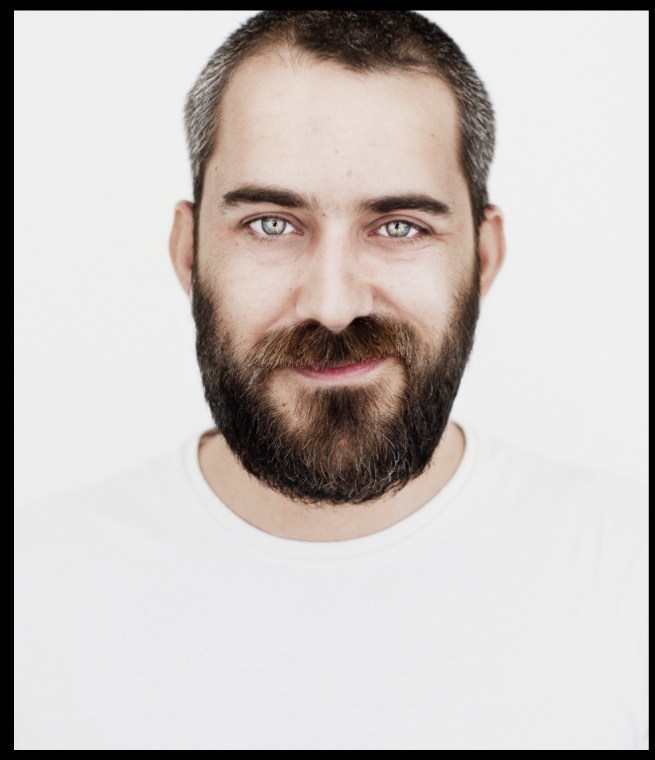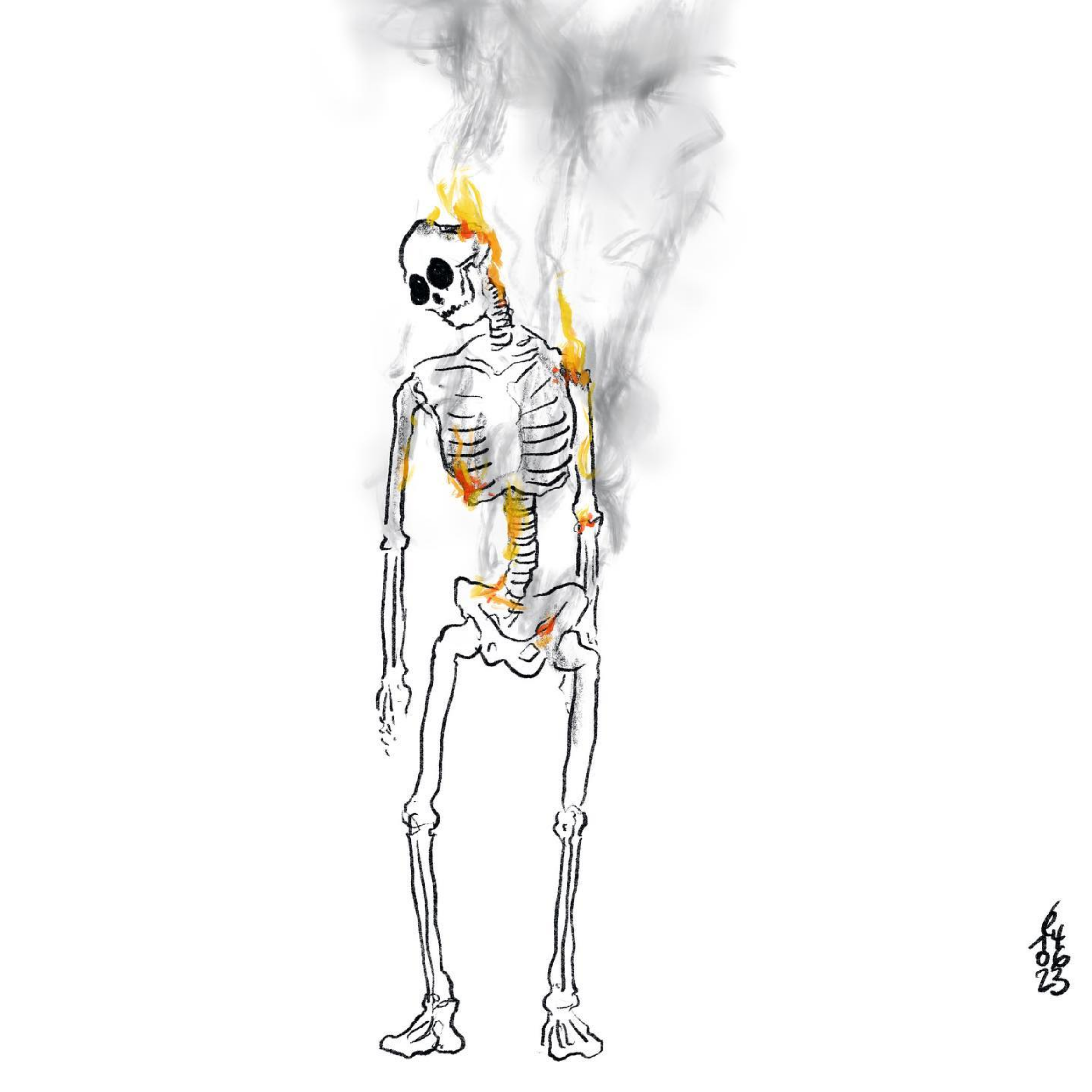Futures
Forum on Deliberation, Creativity and Democracy: citizen deliberation is on the rise
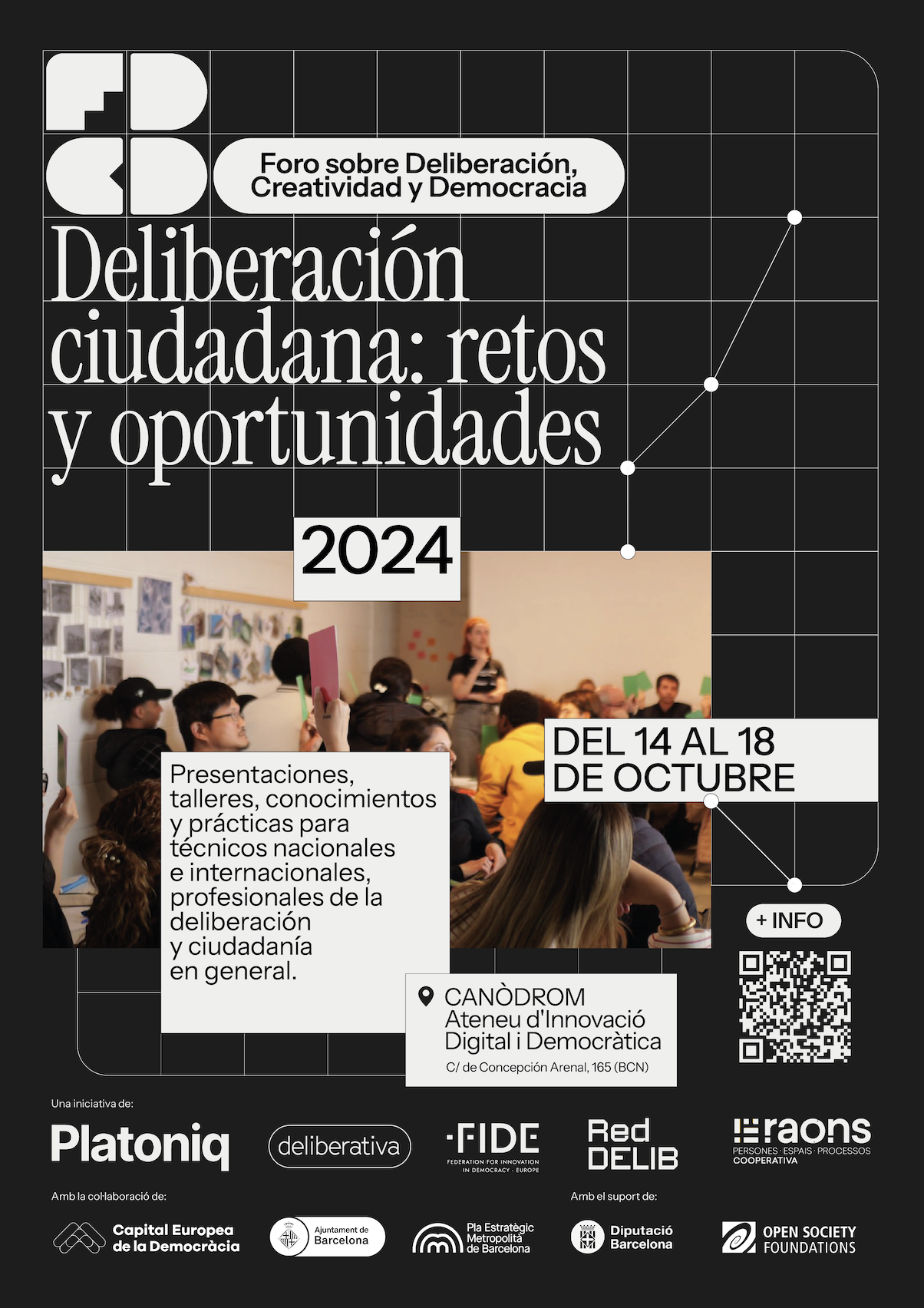
We present the Forum on Deliberation, Creativity and Democracy (Barcelona, October 15-18th) A space for meeting and debate at Barcelona where we will try to answer several questions: Is it possible to improve democracy? Does it make sense to talk politically about the new generations? What is the capacity of organised civil society to influence? Are we puppets in a system that is not sustainable?
The way we organise ourselves politically and make decisions is determined by centuries of tradition and exchange. The system we now recognise as valid, representative democracy, is only the latest expression of social organisation over the last decades.
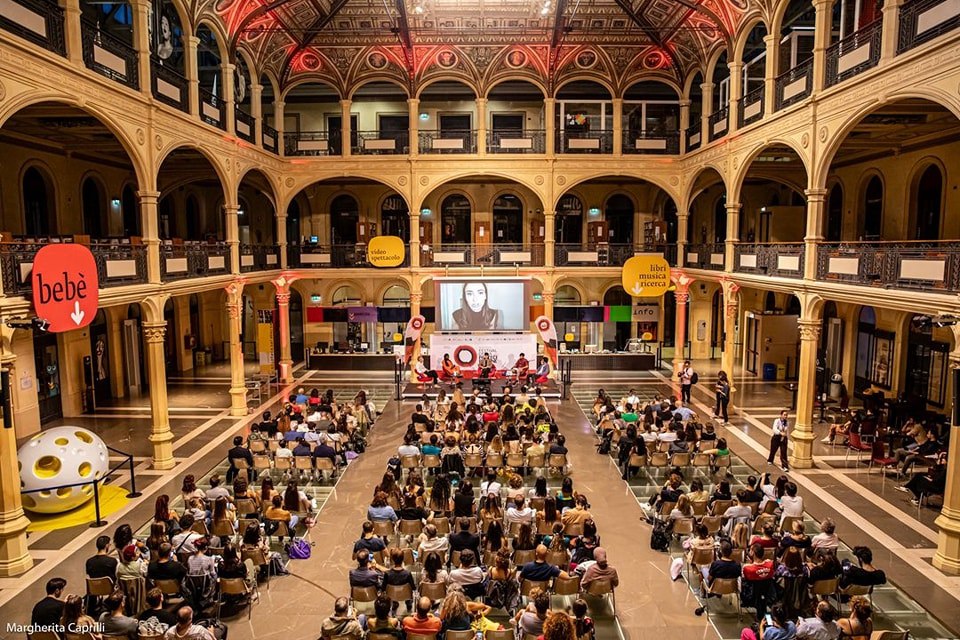
This idea of representation is based on a conception of citizenship as a group of electors whose votes determine the forms that political power takes. The ordinary citizen is no more than a number and is not necessarily required to be involved in common affairs, but rather is assumed to be a passive subject of rights, the main characteristic of which is freedom and plurality of interests. From this point on, the party system is made up of more or less homogeneous groups of citizens, whose interests are represented according to their votes.
Parallel to liberal democracy, there are other contemporary ways of understanding democracy: republican democracy, for example, which does not focus on the individual as a passive subject of rights but as an active subject that sustains a concrete community to be recognised.
In this second case, the civic virtue of citizenship, which serves as the basis for the exercise of political power, is based on an active attitude, expressed not only through voting, but also in more direct ways, such as assemblies or citizen dialogues.
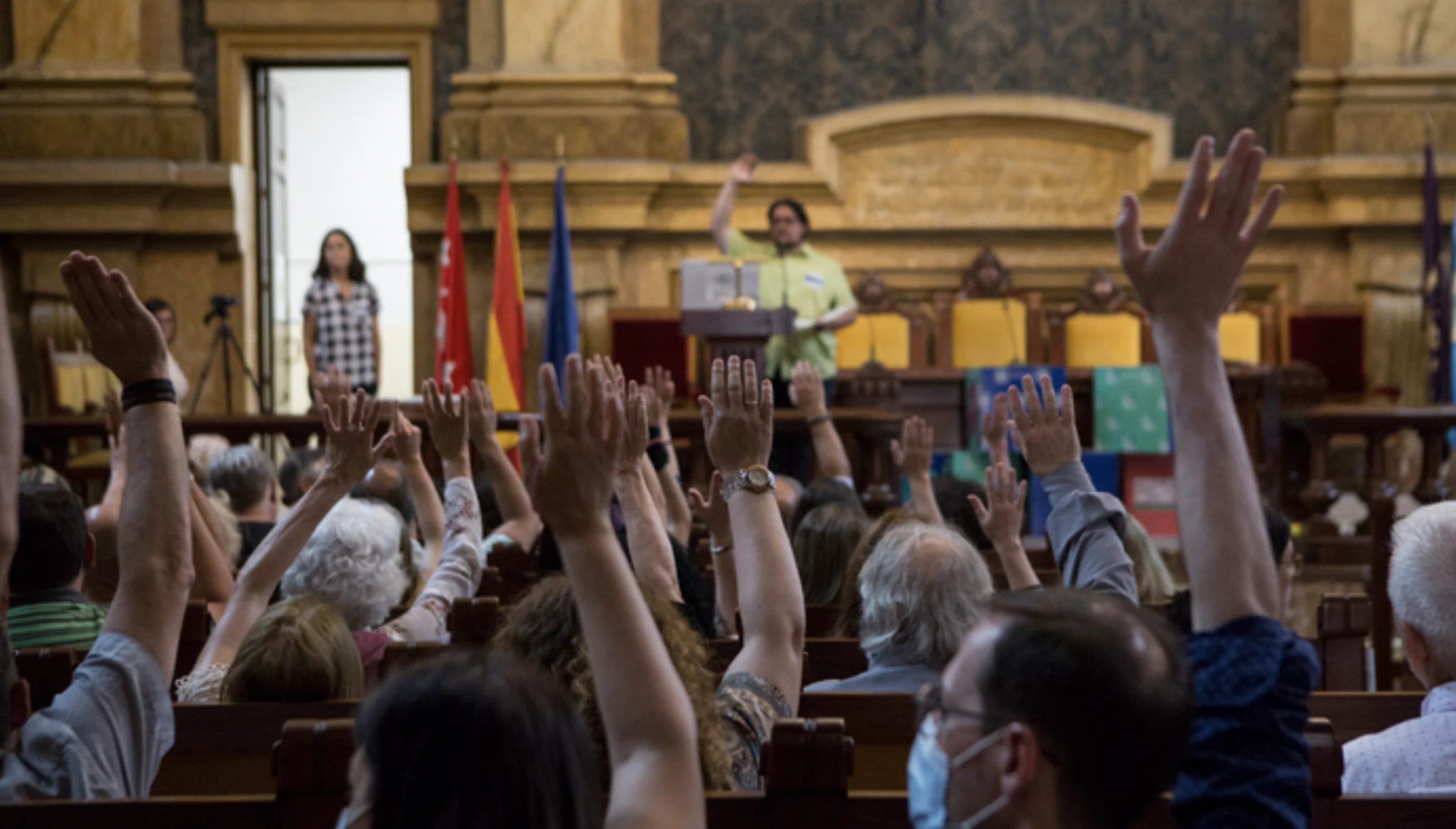
If liberal democracy is defined by the idea of representativeness, republican democracy, on the other hand, is based on the idea of participation and deliberation. It is no small thing that one of the fathers of republican democracy, John Dewey, is one of the main referents of deliberative democracy, Jürgen Habermas. We will not go into the influence of American pragmatism on Habermasian communication theory here, but simply say that both share the view that it is citizens who, in social interaction and its associated practices, weave an intersubjective mesh that sustains political power through the orderly encounter of diverse opinions.
Representative deliberative processes offer the opportunity to find better solutions by harnessing the collective intelligence and cognitive diversity of a group.
In recent decades, the ‘deliberative wave’ has been growing. As the OECD notes in its 2020 report, public authorities at all levels of government increasingly rely on citizens’ assemblies, juries, panels and other representative deliberative processes.
In these processes, says the same report, ‘randomly selected citizens, who constitute a microcosm of a community, spend considerable time learning and collaborating through facilitated deliberation to develop informed collective recommendations for public authorities’.
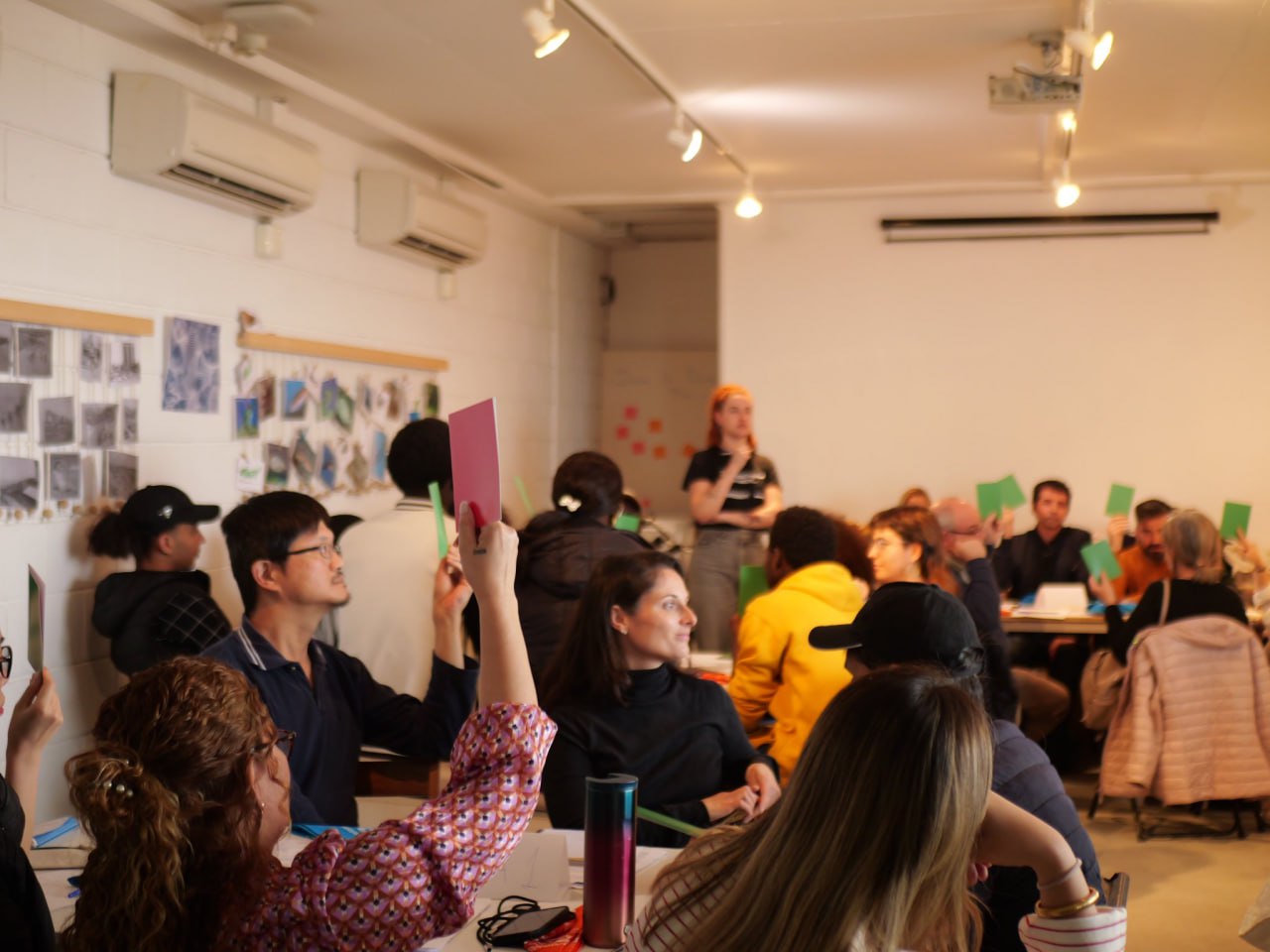
It is no coincidence then that between 2018 and 2021 the main international networks in the deliberative field appeared, Democracy R&D, FIDE (Federation for Innovation in Democracy Europe), KNOCA (Knowledge network on Climate Assemblies) and the OECD Innovative Citizen Participation Network. And since 2023, Delib, the network of organisations and individuals that promote and foster deliberative democracy in the Iberian Peninsula, has been in existence.
In another article, ‘Towards climate democracy: seven citizens’ assemblies and a Manifesto’, we referred to the multiple experiences of citizen participation that have spread throughout the peninsula. Barcelona, Mallorca and Lisbon are some of the cities that, together with Besaya and Gipuzkoa, have held climate assemblies to debate the future of the climate crisis. All of them have been overwhelmed, in a good way, by the state-wide Citizens’ Climate Assembly which, in 2022, reached 172 recommendations under the mandate of the question: ’A safer and fairer Spain in the face of climate change, how do we do it?
The deliberative democracy equation is not easy to solve. Perhaps one of the people who has best defined it is James Fishkin (2009), according to whom there is a trilemma when we talk about democratic values: equality (political), participation (mass) and deliberation (meaningful). The more equality and participation, the less deliberation, he says; the more participation and deliberation, the less equality; and the more equality and deliberation, the less participation.

In the face of these coordinates, there are always new challenges that academia, civil society and organised political power are trying to face in increasingly innovative ways. At the same time, the focus is placed on community participation, close to people’s problems, in order to effectively resolve their concerns in a shared manner.
- How to scale up deliberation on a global scale?
- How to compensate for the under-representation of under-represented groups?
- How to bring deliberation closer to the smallest municipalities in order to improve the traditionally established social order?
- How to improve the transmission of specialised knowledge in the formative phase of the deliberative process?
- Could we include rivers, animals, oceans in public deliberation?
The debate on these and many other issues will take place at the Creativity and Democracy Deliberation Forum at the Canòdrom in Barcelona, from 15 to 18 October, in a programme that is scheduled to include:
- a session on Deliberation in the local world, organised by Raons
- the presentation of the Platoniq School of Creativity and Democracy, where the keys to the intensive training programme in alternative democratic practices will be given, based on experiments with deliberative assemblies and the creation of digital content that triggers social dialogue.
- FIDE’s autumn school, in collaboration with Deliberativa, on citizens’ assemblies.
- and the annual meeting of the Delib network, reserved only for members of the network, where the progress made in terms of participation in the latest citizen experiences will be discussed.
An extensive programme, which will alternate sessions open and closed to the public, to bring the public and professionals in administration and participation closer to the new forms of citizen deliberation, its most paradigmatic cases and future opportunities.
If you want to be part of the global conversation on how it is possible to improve our political citizen participation, register here.
